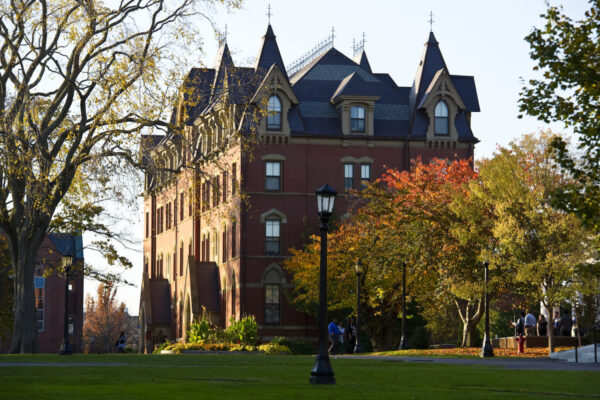By Ted Mitchell
Millions of college students and their families, like so many other Americans, are struggling financially as a result of the pandemic-caused economic downturn.
That’s why Congress in March approved more than $6 billion in emergency grants for students, to be disbursed by their colleges and universities, as part of the CARES Act. That level of funding was not adequate then, and students will need more financial assistance to continue their postsecondary educations this fall. Lawmakers should pass a new stimulus package this month that includes additional assistance for students, as well as for institutions grappling with lost revenues and increased expenses as they eye how best to reopen in the fall.
But, as Congress works on that new aid package, lawmakers should ensure that the Department of Education does not prevent institutions from assisting all students in need. The way that the department bungled the CARES Act grant distribution and arbitrarily cut out roughly 8 million students from even being considered for those emergency grants cannot be repeated.
It’s difficult to identify exactly who all these students are, but this infographic gives a good idea of the broad categories, including more than 500,000 veterans.
Recall that on April 9, Secretary of Education Betsy DeVos pledged to “get support to those most in need as quickly as possible. That starts with college students whose lives have been disrupted, many of whom are facing financial challenges and struggling to make ends meet.” The secretary went on to stress that, “the CARES Act provides institutions with significant discretion on how to award this emergency assistance to students. This means that each institution may develop its own system and process for determining how to allocate these funds, which may include distributing the funds to all students or only to students who demonstrate significant need.”
As The Washington Post reported, DeVos indicated in a call with reporters on April 9 that institutions will have tremendous discretion in awarding grants, including the flexibility to provide help to undocumented students and others without access to federal student aid dollars.
“There is a lot of latitude in the law, but we hope and expect that institutions are going to prioritize those most in need and ensure that’s where the funds get directed to,” DeVos said.
Sadly, that’s not what the department went on to do, even though its original stance was entirely consistent with Congress’s intent when it passed the CARES Act: to get the money quickly to any student who needed it.
The department caused mass confusion over a period of weeks by delaying specific guidance over how institutions should hand out grants and then reversing the secretary’s initial pledge that institutions had the discretion to award grant funds to any students in need by indicating that undocumented students, such as Dreamers, and international students were not eligible. Finally, the department did clarify its position, saying that only students who applied for federal financial aid by completing the FAFSA form were eligible.
As my colleague Terry Hartle said in a July 2 letter to the department that was signed by 32 other associations, the effect has been to essentially turn the emergency grants into a program that excludes all students for whom a FASFSA is not already on file. In short, it turned CARES into another student financial aid program despite clear congressional intent that all students be eligible.
That left out in the cold not only undocumented and international students, but many other students as well.
My colleague Justin Draeger, president of the National Association of Student Financial Aid Administrators, has pointed out several examples:
- Hector, a student who contracted COVID-19 and incurred significant medical expenses because his campus health center had closed — but also has an unrehabilitated defaulted student loan? Not eligible.
- Elise, a low-income student who had to move off campus unexpectedly due to the virus and also has a minor drug conviction? No grant funds.
- William, who needed to buy a laptop to stay enrolled as his college moved to 100 percent distance education but failed to register for Selective Service? He’s not eligible either.
There are many other types of students who may have need but are left out. For instance, a military veteran receiving service-related education benefits may not have filed a FAFSA but who is now struggling financially during the pandemic is not eligible under the department’s criteria.
It should be no surprise that federal judges in California and the state of Washington were clear when they acted to block the department’s grant restrictions in their states: When it passed the CARES Act, Congress intended for colleges and universities to provide emergency grants to all students in need of assistance.
It’s sad that the Trump administration rejected the opportunity to do the right thing by all students in implementing the distribution of CARES Act emergency grants. We must hope that Congress does not allow them to do it again.
If you have any questions or comments about this blog post, please contact us.



